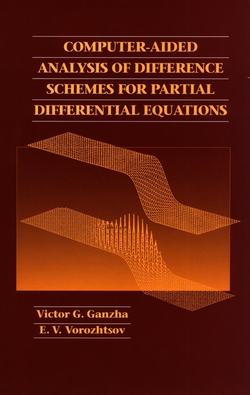Описание книги
Advances in computer technology have conveniently coincided with trends in numerical analysis toward increased complexity of computational algorithms based on finite difference methods. It is no longer feasible to perform stability investigation of these methods manually–and no longer necessary. As this book shows, modern computer algebra tools can be combined with methods from numerical analysis to generate programs that will do the job automatically. Comprehensive, timely, and accessible–this is the definitive reference on the application of computerized symbolic manipulations for analyzing the stability of a wide range of difference schemes. In particular, it deals with those schemes that are used to solve complex physical problems in areas such as gas dynamics, heat and mass transfer, catastrophe theory, elasticity, shallow water theory, and more. Introducing many new applications, methods, and concepts, Computer-Aided Analysis of Difference Schemes for Partial Differential Equations * Shows how computational algebra expedites the task of stability analysis–whatever the approach to stability investigation * Covers ten different approaches for each stability method * Deals with the specific characteristics of each method and its application to problems commonly encountered by numerical modelers * Describes all basic mathematical formulas that are necessary to implement each algorithm * Provides each formula in several global algebraic symbolic languages, such as MAPLE, MATHEMATICA, and REDUCE * Includes numerous illustrations and thought-provoking examples throughout the text For mathematicians, physicists, and engineers, as well as for postgraduate students, and for anyone involved with numeric solutions for real-world physical problems, this book provides a valuable resource, a helpful guide, and a head start on developments for the twenty-first century.
